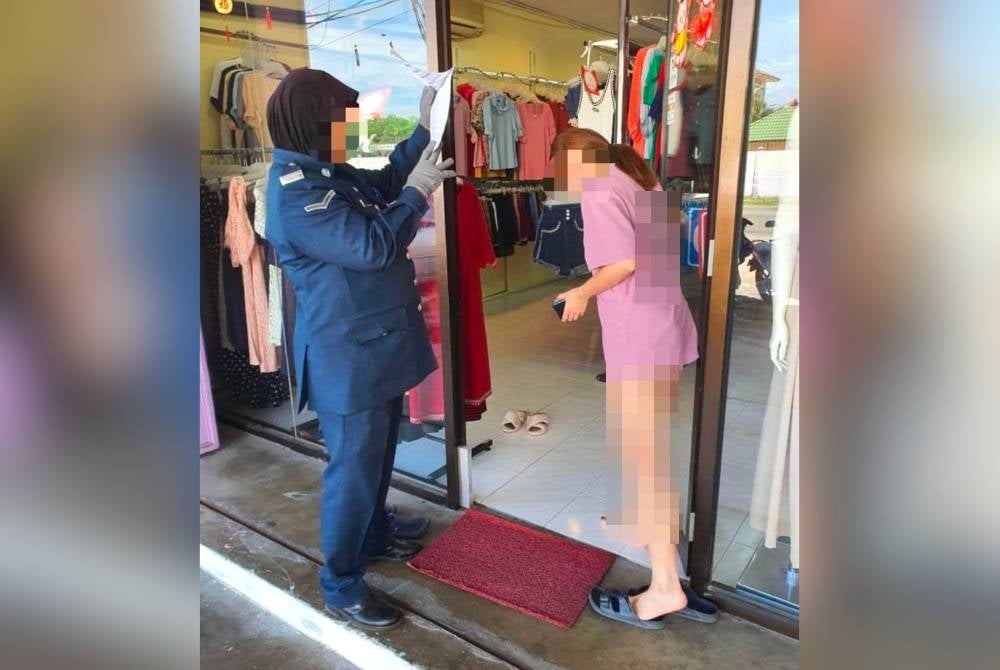Since when it's wrong to wear shorts, lawyers ask Kota Bharu Council

SHAH ALAM - Compounding a woman for wearing shorts goes against the Federal Constitution as there is freedom of religion and movement under the Federal Constitution, lawyers say.
Due to that, lawyer Manoharon Malayalam said Kota Bahru Municipal Council (MPKB) is wrong in compounding a Kelantanese Chinese trader.
"MPKB is in the wrong for imposing a compound on the woman since a dress code cannot be enforced without a proper standard in place.
"It is unfair and illogical to compound someone based on a dress code that does not even exist," he told Sinar Daily.
He said it is important to prioritise education over punishment and refrain from indiscriminately penalising individuals.
“It is injustice for individuals as it is against the Federal Constitution where the liberty of the person is affected.
“We don’t have to follow this as it is not a law. The guidelines could be a by-law and it is not the main law," he added.
Lawyer Kokila Vaani Vadiveloo said MPKB’s authority to issue a compound for dressing inappropriately may be challenged because it interferes with the Federal Constitution.
“The Federal Constitution guarantees freedom of expression as per Article 10(1)(a) which includes the right to wear whatever clothing one chooses.
“However, the Federal Constitution also allows for restrictions on this right, such as those that are necessary to protect public order or morality.
“Ultimately, the question of whether or not the MPKB by-laws are constitutional is a matter for the courts to decide," she told Sinar Daily.
However, Kokila said it is clear that there are potential grounds for challenging the by-laws on constitutional grounds.
She added enforcement by a city council such as MPKB in this particular instance, to police women's clothing would potentially infringe upon the rights of individuals, including non-Muslims, that are guaranteed under the Federal Constitution.
“This specifically refers to an individual's rights to freedom of expression and religious freedom pursuant to Articles 10 and 11 of the Federal Constitution.
“It is pertinent to note that subjecting non-Muslims to penalties under these Shariah-influenced by-laws goes against the principles and intent of Shariah laws.
“If local authorities are allowed to implement legislations on dress code, it would mean that non-Muslims in those areas would be subject to the same dress code as Muslims,” she expressed.
She added In Malaysia, the regulation of clothing and determining what is considered indecent falls under the jurisdiction of State Governments rather than the Federal Government.
“The laws governing indecent dressing and modesty vary between states and are typically implemented through local by-laws or regulations.
“It is thus necessary to establish unambiguous guidelines to determine what qualifies as "indecent" clothing, wherein the level of indecency should extend beyond standard attire like T-shirts and shorts and encompass aspects such as partial nudity.
“What is considered decent or indecent can vary from person to person,” she said.
But lawyer Fatihah Jamhari said there is no solution for the problem unless the Kelantan by-laws are amended or to move out of Kelantan.
“Malaysian states have regulations on public order and morality and no one can force anybody to follow the law. The only thing to ensure compliance is a penalty.
“Anyone who doesn't want to follow the law can always opt to pay the penalty. It's simple math,” she said.
She added many argue that morality is a principle imposed by Muslim lawmakers on non-Muslims.
“Are we thus saying that non-Muslims do not hold morality as a social norm? Malaysia remains strong in its Eastern values, even without stressing its Islamic values.
“Are we saying Hindus, Buddhists, and Christians in Malaysia are okay with women walking in nude or semi-nude in public?
“Do non-Muslims support immorality, lewdness and obscenity in public spaces?” she questioned.
Recently, a woman trader in Jalan Merbau in Kelantan was issued a compound for wearing shorts in her shop by MPKB.
Local Government Development Minister Nga Kor Ming has called for MPKB to retract the compound and expressed that such action should not have been taken, as the freedom to wear attire of one's choice is a fundamental right protected under the Federal Constitution.










